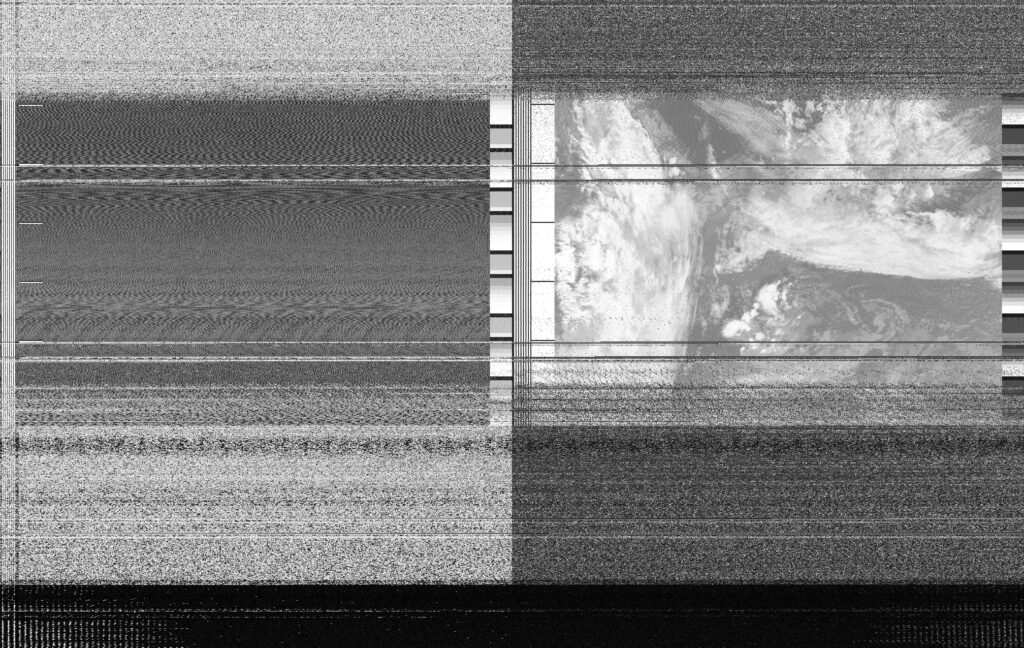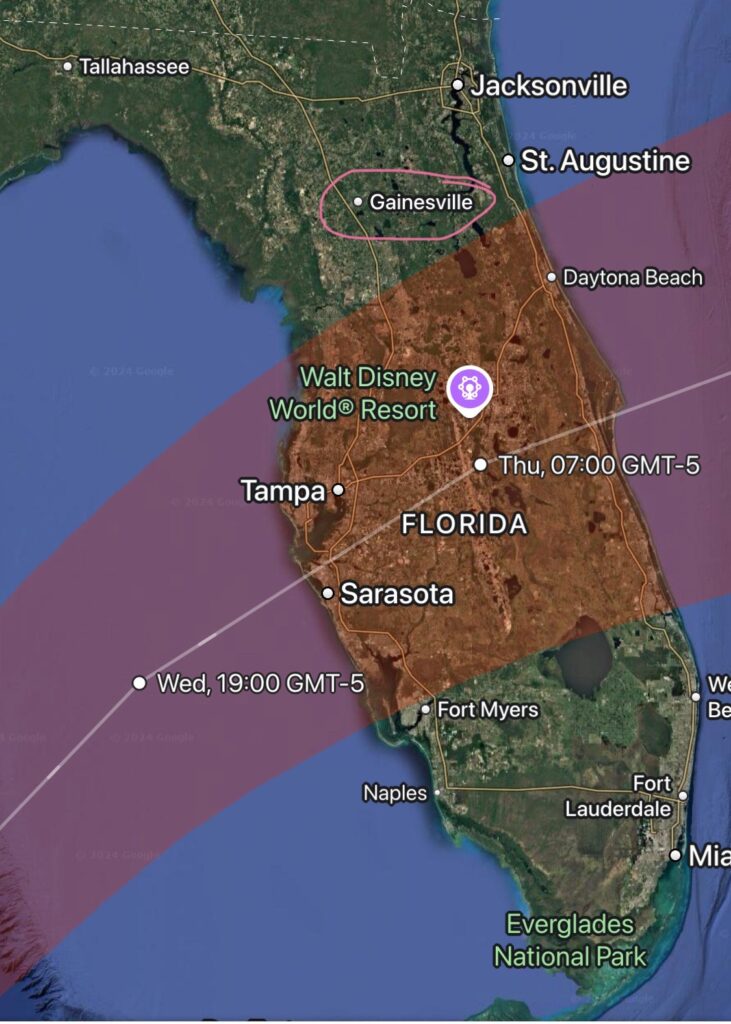Local Date
8 October 2024Local Time
21:56Location
LondonCountry or Territory
UKContributor
Prototype Automatic Ground Station 10Satellite
NOAA-18Archive ID
Coordinates
Automatic Ground Station
I wake up to news of Hurricane Milton, one of the most rapidly intensifying storms ever measured in the Gulf of New Mexico. The category 5 storm is on a path to make landfall in Western Florida by Wednesday evening in EST. My Mom just moved to Florida two months ago - on time for hurricane season. She lives in Gainesville, just north of the projected path of Milton. On various late night phone calls over the last two weeks, she has showed me mountains of debris on her street, still there from Hurricane Helene, which also passed close, but not directly over Gainesville. Later in the day, I am in a team supervision with one of my PhD students, and my co-supervisor, a geomorphologist and quaternary scientist, shares that he was planning on searching NOAA's National Centre's for Environmental Information the other day (researching data for a third year undergraduate course practical) but the NCEI headquarters are in Asheville (Buncombe County) in North Carolina, one of the cities hardest hit by Hurricane Helene in the last few days of September, and they have had a continuous power outage since. My colleague reports that most of the region's electricity substations were flood damaged, as are all the bridges. Initial damage estimates are coming out in the order of $30-45 bn. Out of >100,000 houses in Buncombe County only around 900 have flood insurance. A former NOAA scientist has estimated 40 trillion gallons of water fell. And now Milton has arrived. Normally, the NCEI would offer 'real time' products for tracking weather like Milton, and it is a crucial hub in packaging various forms of satellite, sensor and other data for a wide group of people including farmers, businessmen, insurance companies and weather services around the US. But as of today, none of NCEI's real-time tracking and forecasting features are available - this is a big hole in networks of weather data sharing and communicating. As I hold my turnstile antenna out the window for a satellite pass close to 11pm this evening, I read the prognosis of a Florida based meteorologist, speaking of Milton: "This is nothing short of astronomical... This hurricane is nearing the mathematical limit of what Earth's atmosphere over this ocean water can produce."

